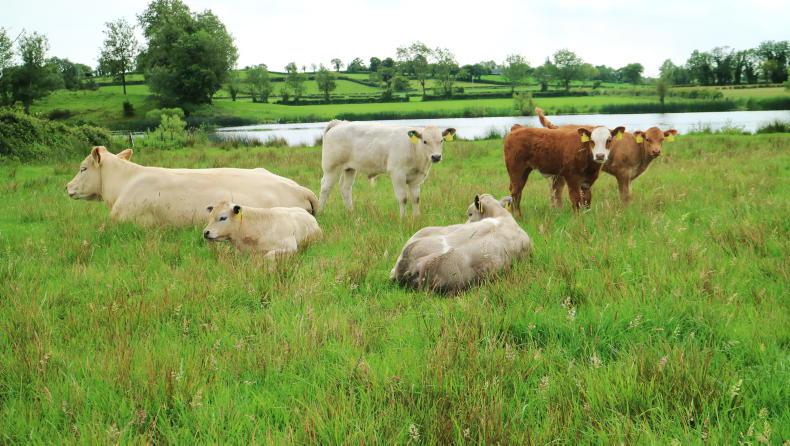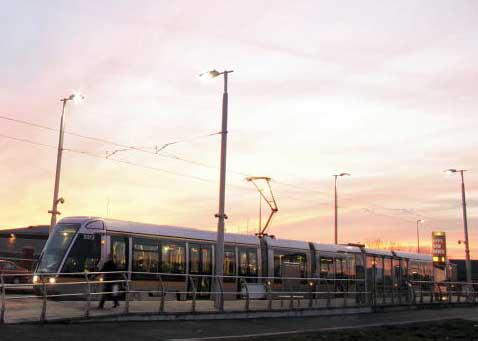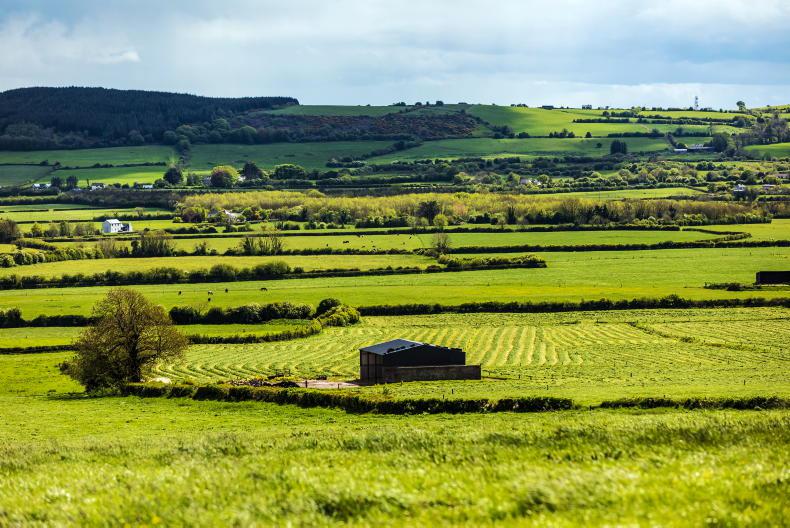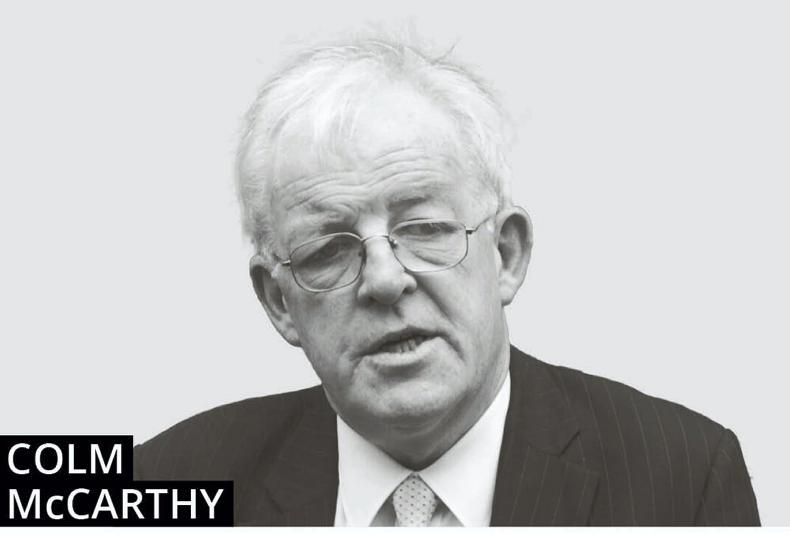A bill that would prohibit fracking in NI was introduced to the Stormont Assembly on Monday by Sinn Féin Fermanagh and South Tyrone MLA Áine Murphy.
The draft legislation, which still has a number of stages to go through before becoming law, would ban the controversial process of hydraulic fracturing, which enables the extraction of natural gas or oil mainly from shale and sandstone.
Fracking was banned in the Republic of Ireland in 2017, while it is opposed by both the Scottish and Welsh governments.
The move by Sinn Féin has been welcomed by environmental campaigners
In 2019, the UK government announced that fracking would not be allowed to proceed in England amid concerns about earthquakes linked to drilling operations.
The move by Sinn Féin has been welcomed by environmental campaigners, but labelled as a “meaningless gesture” by Friends of the Earth in NI unless the party commits to blocking two applications for a Petroleum Licence currently with the Department for the Economy (DfE).
Those licences relate to applications by Tamboran Resources (UK) Limited to extract natural gas in southwest Fermanagh, and EHA Exploration Limited to search for oil and gas south and east of Lough Neagh.
Under consideration
According to DfE, these licences are both “still under consideration”, and ultimately a decision on whether to grant them will be taken by the Stormont Executive, not an individual Department.
In the case of EHA Exploration, it claims it will search for conventional oil and gas, and not shale gas that would require fracking.
Tamboran has said that it will not be using fracking in the first three years of a licence, and instead during this period would take samples to assess potential gas yield.
However, campaigners against both licences fear that if they are granted, it will ultimately lead to fracking being given the green light in NI.
In 2020, former Economy Minister Diane Dodds commissioned English consultancy firm Hatch Regeneris to assess the environmental, social and economic impacts of petroleum development in NI.
While the report was handed over to DfE in July 2022, it has not yet been made public, although sections of it have now appeared online
According to the Department, that report will not make policy recommendations but instead its findings will inform the local policy development process, which ultimately will be subject to approval by the Stormont Executive.
While the report was handed over to DfE in July 2022, it has not yet been made public, although sections of it have now appeared online.
That prompted the chair of the Stormont economy committee, Sinn Féin MLA Caoimhe Archibald, to call for the full report to be published.
She also confirmed that “Sinn Féin is opposed to the approval of any petroleum licences by the Department for the Economy”.
FFA
Among the groups objecting to petroleum licences have been Farmers For Action (FFA) in NI, who maintain that “we can wave bye-bye to NI’s clean green image for top quality food production”, if the licences are approved.
The carbon dioxide, which is a byproduct of that process, would have to be captured and stored underground to mitigate the impact on climate change
They have also raised concerns that some MLAs are sold on the concept of “blue hydrogen” as a clean fuel, describing the potential to produce it in NI as “Disneyland”.
“Blue hydrogen” is produced when natural gas and steam are mixed.
The carbon dioxide, which is a byproduct of that process, would have to be captured and stored underground to mitigate the impact on climate change.
Despite that, it is currently much cheaper to produce “blue hydrogen” than “green hydrogen”. The latter is climate neutral and relies on power from renewable electricity sources to split water by electrolysis into hydrogen and oxygen.
Read more
Fractured opinions - fracking in the USA
30-40% of Europe’s gas consumption could be met with biomethane by 2050
A bill that would prohibit fracking in NI was introduced to the Stormont Assembly on Monday by Sinn Féin Fermanagh and South Tyrone MLA Áine Murphy.
The draft legislation, which still has a number of stages to go through before becoming law, would ban the controversial process of hydraulic fracturing, which enables the extraction of natural gas or oil mainly from shale and sandstone.
Fracking was banned in the Republic of Ireland in 2017, while it is opposed by both the Scottish and Welsh governments.
The move by Sinn Féin has been welcomed by environmental campaigners
In 2019, the UK government announced that fracking would not be allowed to proceed in England amid concerns about earthquakes linked to drilling operations.
The move by Sinn Féin has been welcomed by environmental campaigners, but labelled as a “meaningless gesture” by Friends of the Earth in NI unless the party commits to blocking two applications for a Petroleum Licence currently with the Department for the Economy (DfE).
Those licences relate to applications by Tamboran Resources (UK) Limited to extract natural gas in southwest Fermanagh, and EHA Exploration Limited to search for oil and gas south and east of Lough Neagh.
Under consideration
According to DfE, these licences are both “still under consideration”, and ultimately a decision on whether to grant them will be taken by the Stormont Executive, not an individual Department.
In the case of EHA Exploration, it claims it will search for conventional oil and gas, and not shale gas that would require fracking.
Tamboran has said that it will not be using fracking in the first three years of a licence, and instead during this period would take samples to assess potential gas yield.
However, campaigners against both licences fear that if they are granted, it will ultimately lead to fracking being given the green light in NI.
In 2020, former Economy Minister Diane Dodds commissioned English consultancy firm Hatch Regeneris to assess the environmental, social and economic impacts of petroleum development in NI.
While the report was handed over to DfE in July 2022, it has not yet been made public, although sections of it have now appeared online
According to the Department, that report will not make policy recommendations but instead its findings will inform the local policy development process, which ultimately will be subject to approval by the Stormont Executive.
While the report was handed over to DfE in July 2022, it has not yet been made public, although sections of it have now appeared online.
That prompted the chair of the Stormont economy committee, Sinn Féin MLA Caoimhe Archibald, to call for the full report to be published.
She also confirmed that “Sinn Féin is opposed to the approval of any petroleum licences by the Department for the Economy”.
FFA
Among the groups objecting to petroleum licences have been Farmers For Action (FFA) in NI, who maintain that “we can wave bye-bye to NI’s clean green image for top quality food production”, if the licences are approved.
The carbon dioxide, which is a byproduct of that process, would have to be captured and stored underground to mitigate the impact on climate change
They have also raised concerns that some MLAs are sold on the concept of “blue hydrogen” as a clean fuel, describing the potential to produce it in NI as “Disneyland”.
“Blue hydrogen” is produced when natural gas and steam are mixed.
The carbon dioxide, which is a byproduct of that process, would have to be captured and stored underground to mitigate the impact on climate change.
Despite that, it is currently much cheaper to produce “blue hydrogen” than “green hydrogen”. The latter is climate neutral and relies on power from renewable electricity sources to split water by electrolysis into hydrogen and oxygen.
Read more
Fractured opinions - fracking in the USA
30-40% of Europe’s gas consumption could be met with biomethane by 2050










SHARING OPTIONS